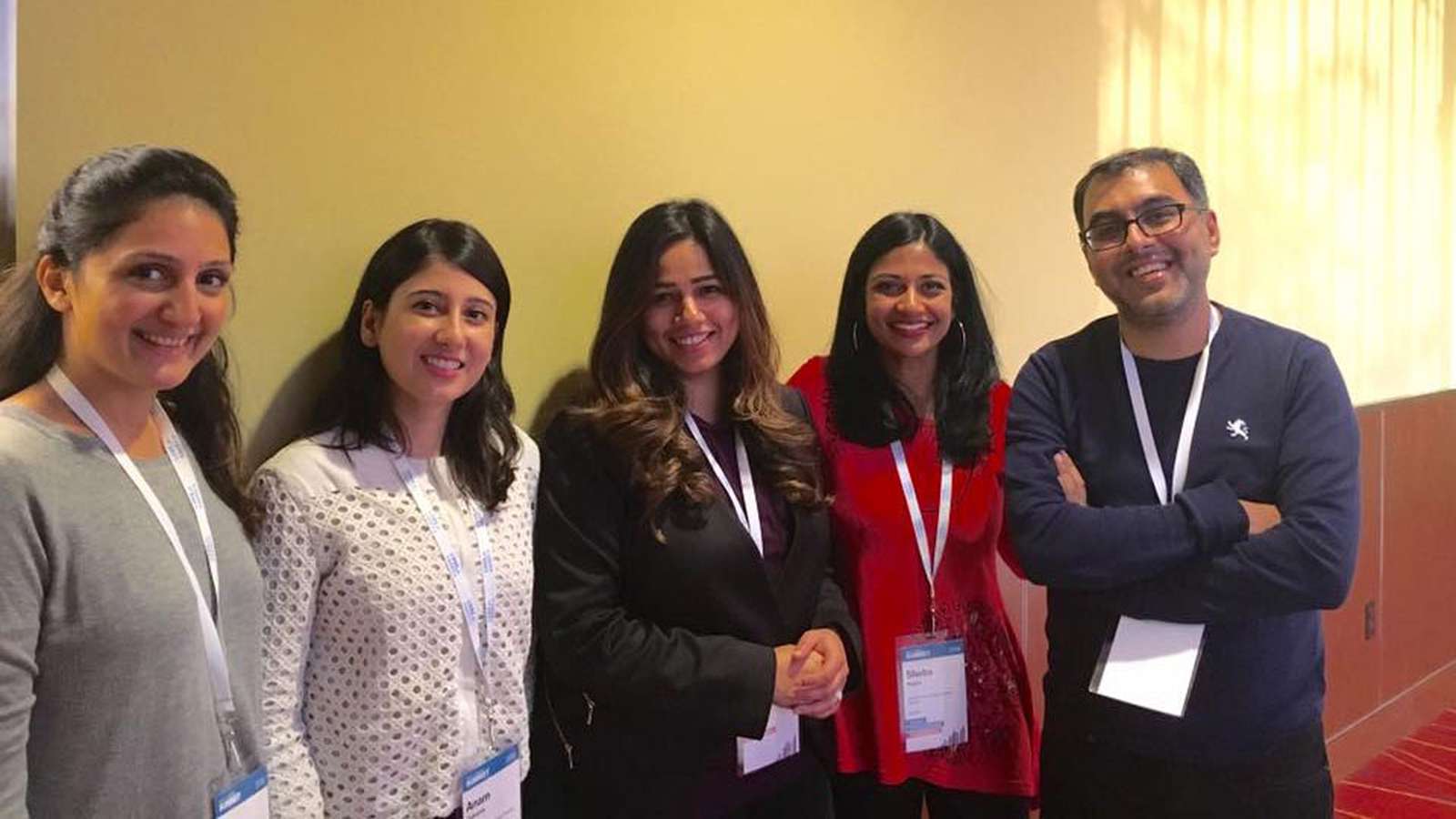
When I was invited to attend the Code for America Summit in Oakland this November, I could not help but feel slightly anxious. It was going to be a huge room full of tech experts and civic innovation leaders; fields I was still trying to get my head around. I had joined Code for Pakistan as Head of Programs barely 2 months ago. My background was in international development and though I was deeply interested in civic innovation and the role technology could play in addressing social and economic issues plaguing Pakistan, I was uncertain of how much I could take away from the Summit. Would the talks involve a lot of high level conversations and jargon that I would be unable to make sense of? Would I be able to contribute in any meaningful way? Would I leave with any valuable takeaways?
Little did I know that I would feel comfortable at once. From the very first day I met the Code for All team, I was hooked to the energy in the room. These were inspirational people from all around the world, collected in one room to brainstorm ideas, share success stories and learn from others. By the time I would leave 3 days later, I would have made strong friendships with many of them; friendships that I’m confident will grow only stronger over the next few months and years.
As I sat in the room full of representatives from across the world- Canada, Mexico, Romania, Taiwan, Japan, Poland, Germany, South Africa and Australia to name a few- it was deeply heartening to see how over the past few years the Code for All community has come together to drive social change around the globe. I could see that the people sitting in the room were not mere peers or colleagues but rather almost like a close knit family, each celebrating the achievements of the other and every member trying to build a holistic, inclusive, enriching and supportive environment for the others.
I had the privilege to see ideas, projects and collaborations come alive during my time at the Summit. I learnt about fantastic open data initiatives and data journalism being run in Africa, about Fellowships and Academy Programs in Australia, about a Digital Services Unit in Canada, about citizens writing their own constitution in Mexico- and so much more. I saw the links between tech, civic innovation and improvement in citizens lives that I had been reading and hearing about come to life as Fellows from Code for America shared project stories of targeting poverty, racial discrimination and other forms of social injustice through technology and digital solutions.
I learnt about the importance of inclusive design, of building empathy for innovation, of observing the biases in the way we ask questions, in whom we pose our questions to and how we listen. I also learnt about the importance of iterative design; rather than focusing on the perfect policy design, it was so much more important to build space for constant learning and evolution in the products and services we created and delivered. I was also so grateful for the opportunity to listen to key policy experts and leaders like DJ Patil, Chief Data Scientist from the White House Office of Science and Technology Policy- who are actively engaged in taking the learning from the community to transform the way governments work.
Coming back to Pakistan, I feel energized to not only share knowledge from the Summit but to also implement projects and programs in the country that I have learnt about. The timing is perfect for Code for Pakistan is about to launch its third cycle of the KP Civic Innovation Fellowship Program in collaboration with the KP IT Board and The World Bank Group. Our Fellows worked with the Traffic Department and Provincial Disaster Relief Management Authority last time to improve government tools. This time we will be focusing on citizen facing digital services. As we gear up to launch the Fellowship Program in early 2017, the insights I have gained about the global civic innovation movement will prove instrumental. I am particularly excited to develop collaborations with other Code for All members so that our Fellows can learn from their diverse experience and become a part of the dynamic world movement.